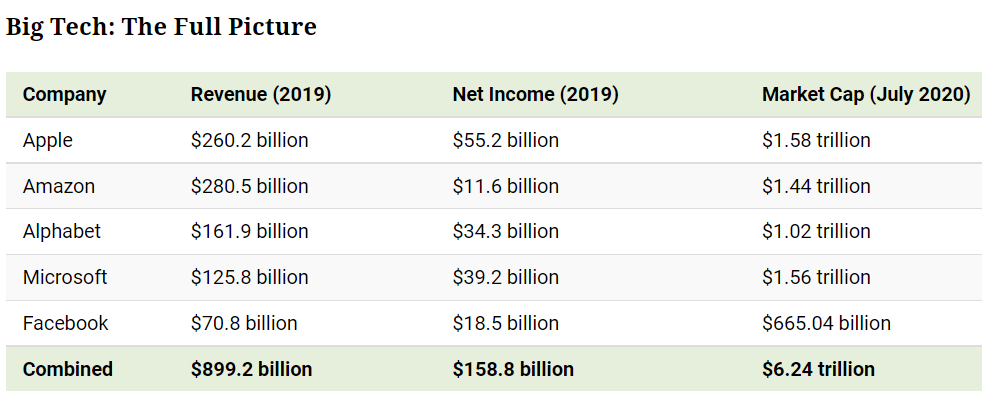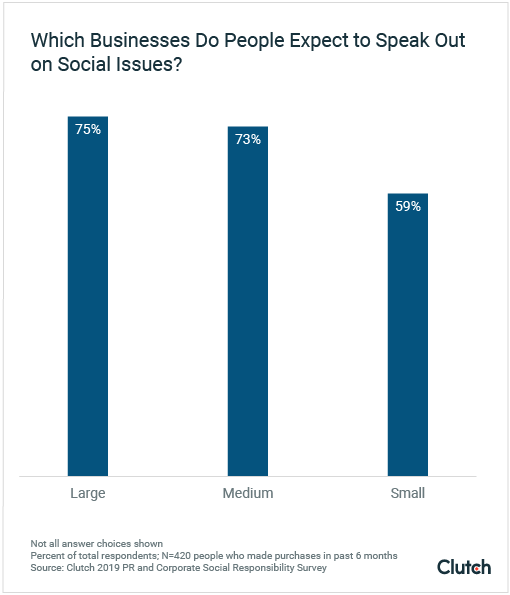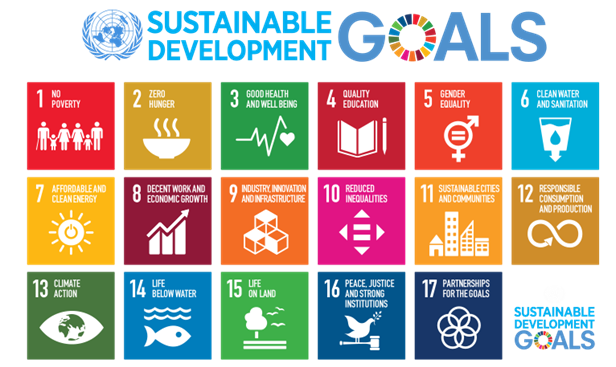Last 2020, during the Covid pandemic, many technology companies grew their business at a substantially faster pace than ever before. In total, the top 5 tech giants Apple, Amazon, Google (Alphabet), Microsoft, and Facebook “generated a revenue of $900 billion” (estimated by Visual Capitalist); It is roughly comparable to the GDP of the Netherlands and even exceeds that of Belgium.
While many technology companies are progressing towards a brighter future, Covid, together with other natural concerns such as global climate changes, are pushing millions of people into deaths, loss, and poverty. According to the World Bank, more than 26 million people are forced into poverty each year by climate-related catastrophes and natural hazards.

Big Tech Makes Their Billions by Visual Capitalist
So, the questions that many people have raised when seeing the $5.2 trillion market value of the technology industry mostly concern this: Should technology companies be responsible for more initiatives toward sustainable development?
Before jumping straight to the answer, we should look at the reasons why people fire the question “are technology companies responsible for sustainable development” into the technology sector?
Why should technology companies take more responsibility for sustainable development?
1. Because they have the power and capability to better the world.
Governments around the world have considered technology and digitalization as a key foundation for the digital economies of their nations. From a developing country like Vietnam to the exceedingly wealthier United States, the technology sector contributes significantly to their annual GDPs. From 2017 to 2021, technology comprised around 9-10% of the GDP of the US while the figure for the ICT sector in Vietnam GPD was relatively the same, at around 10.9% in 2021.
The big revenue from Technology reflects how important it is to our daily life. We ponder at the notion that Facebook is listening to us daily, instead, we essentially have to accept that software can now guess our next google search or holiday destination before we even subconsciously know ourselves! Remember that time when you were talking to a buddy about traveling to the Maldives, and suddenly lists of Maldives holiday bargains started to appear on your Facebook homepage or even your YouTube Ads. That is how surreal the algorithm that Facebook, Google, and other tech giants are using is.
So how about technology startups and SMEs? Clearly, they cannot generate enormous revenues like their famous and established counterparts, but they still hold the power to create influential impacts on society. Many SMEs and startups now are working on AI, Robotics, and cognitive thinking. Undoubtedly, these types of technology help us collect vast amounts of data on all of us to present a picture of society’s genuine problems. They know where the disease is, where the water is contaminated, and where children are starving. In sum, they know more about everything than anybody else in history. Thus, technology firms are now expected to provide greater social value to individuals.
2. Stakeholders and customers are expecting technology companies to take actions

Another explanation for the question “are technology companies responsible for sustainable development” is that with the huge power of advanced technology, firms in this sector are required to take bigger steps toward the development of society. What people are hoping for is not purely their enormous figures of revenue or profits or the number of employees they hire. We, as citizens, are awaiting more society-oriented actions. According to research by Clutch in 2019, three-quarters of people believe that large businesses (75%) and medium businesses (73%) should support social movements, compared to 59% of people who think small businesses should support social movements.
In 2018, when Microsoft introduced the “Xbox Adaptive Controller”, the first adaptive game controller that gives gamers with disabilities precise control when they play the game. Their helpful product, plus the inspirational campaign, helped the company illustrate its commitment to building accessible technology and creating opportunities for all of us. Microsoft then received huge media coverage as well as support from its social media followers.
Facebook, reversely, has recently faced a wave of strong criticism from governments, the press, and users because of its data leak scandals. This company also received a lot of criticism from experts and researchers because the platform was reported to ” exploit the human brain’s attraction to divisiveness.” “If left unchecked”, the platform would push “more and more divisive content in an effort to gain user attention & increase time on the platform.” Many terrorists and extremists have been led by Facebook recommendation tools to join their groups. According to one study, 64% of all extremist group joins are due to Facebook recommendation tools.
In summary, the answer to the question: Are technology companies responsible for more initiatives toward social responsibility and sustainable development? Most definitely YES. But what exactly are sustainable developments? What actions can technology companies take toward social responsibility and to a bigger extent, sustainable development?
In the span of the article, Sunbytes will only discuss the feasible solutions for SMEs and startups to roll up their sleeves and join hands to create a better world.
What are the sustainable development goals?
First introduced by the United Nations in 2015 and receiving consensus from 193 countries worldwide, the 17 Sustainable Development Goals (SDGs) are a pledge of all the nations and everyone to tackle the painful problems: poverty, inequality, and climate change.

What actions can SMEs and startups take towards social responsibility and sustainable development?
1. Create a society-oriented product
A product or solution that helps the community is always one of your company’s firmest statements about social responsibility. According to goal 8 of the 17 Sustainable Development Goals of the United Nations, every individual or organization, whether a developer, a president or an NGO is encouraged to “Promote inclusive and sustainable economic growth, employment and decent work for all.”
At Sunbytes, since 2015, we have been supporting Kwadraad to give support to people in need of help with misery, loss, conflict/violence, and education by creating and upgrading an Online Dossier, a platform to connect social professionals with people in trouble. With support from Sunbytes Team as a Service (TaaS), Kwadraad has assisted thousands of people in the Netherlands every day.
Another outstanding example of this action is Canva, a technology with offices around the world: US, China, the Philippines, etc. What they did for society is that they created a non-profit program in which NGOs can enjoy the premium features of Canva Pro’s program for free.
2. Go green and sustainable at your workplace
Even if Covid 19 accelerated the popularity of remote working, there are still many ways to encourage the team members of your company to go green from very small actions in their daily routine. Saving paper, electricity, and water, planting trees, recycling used utensils and planting trees around the work area, and turning on the air conditioner at low mode are things your employees can do anywhere, whether at home or in the office at any time.
3. Take care of your team members
People who are firing the question “are technology companies responsible for sustainable development” may carefully watch how you are treating your employees. Taking care of your team members‘ career development and ensuring they are physically and mentally healthy is the most obvious act of your company’s social responsibility. In some countries, in the Corporate Sustainable Index (CSI), employee welfare and benefits are key points to be ranked in the list of sustainable businesses. In addition to paying full bonuses, your company should develop training programs to help employees progress their careers, create opportunities for them to be promoted, and give them chances to innovate.
4. Establish a giving program
Your company can donate funds and products to charity organizations. A giving program can be initiated by the company itself or by the employees. Zomato, a famous restaurant aggregator and food delivery platform in India launched The Daily Feeding Program and Feeding India non-profit organization to support individuals with cooked meals daily. Later, they have a growing network of credible NGOs involved in the field of education, skill development, and livelihood to feed dependent beneficiaries. Up to Sep 2021, 30 million meals have been served in India thanks to this program, making Feeding India a reputable and trusted NGO that now is working more with the government to run other programs to improve the Indian society.
5. Establish a sustainable strategy for your organization
When your startups move to a later stage, maybe one day you will look for ways to establish a sustainable strategy for your organization. Check out the steps to implement this initiative below:
Step 1️⃣: Understand 17+1 Sustainable Development Goals by United Nations
Step 2️⃣: Take a deep dive into the specific targets of the 17+1 Sustainable Development Goals in the 2030 agenda
Step 3️⃣: Have a look at the GRI standards (Global Reporting Initiative) to understand the key measurements in each factor: climate change, human rights, risks, mitigation, etc. in this link
Step 4️⃣: Check out sustainable development goals and the corporate sustainability index by your country. For the Netherlands, please visit the CSR website by the government
Step 5️⃣: Look back and map SDGs goals with your business operation activities. It makes sense that some SDGs in the high impact/high opportunity should be tackled first.
Step 6️⃣: Create feasible goals for your organization and make an action plan for them. Try to incorporate these goals into your values and missions. There are plenty of ways to facilitate sustainability in software companies, apart from unplugging your computers. Once “go green” lies in the heart of your business, it is easier for you to overcome the challenges on the way towards sustainability.
Step 7️⃣: Establish a sustainability team to implement and monitor the action plan.
Step 8️⃣: Continuously improve your plan. Join sustainability forums to exchange ideas and open new doors for changes. Foster innovation is also a target (in Goal no 9) of SDGs then do not forget to welcome new ideas and cooperation.
Step 9️⃣: You may apply for sustainability awards to learn more practices from other companies. Registering for awards also creates a chance for you to examine the factors you have missed in your plan.
Step 🔟: Congratulations! Whether you win any award or not, we are pretty sure that your business has made a big leap towards sustainability and is making this world better!
To sum up, there are more and more many activities for your startup/ SME that can start your path towards sustainable development. Within the span of this article, we cannot list down all of the ideas, but if you and your company follow the recommendations above, you will probably say yes when asked “are technology companies responsible for sustainable development?”.




